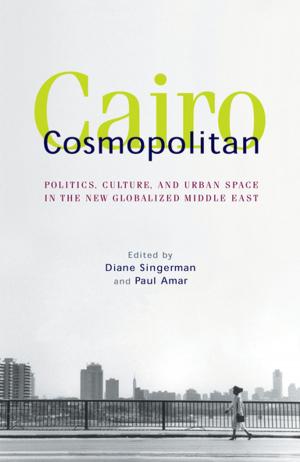Egypt's Political Economy
Power Relations in Development
Business & Finance, Economics, Economic Development, Nonfiction, Social & Cultural Studies, Political Science, Politics, Economic Conditions, Economic Policy| Author: | Nadia Ramsis Farah | ISBN: | 9781617973826 |
| Publisher: | The American University in Cairo Press | Publication: | March 1, 2009 |
| Imprint: | The American University in Cairo Press | Language: | English |
| Author: | Nadia Ramsis Farah |
| ISBN: | 9781617973826 |
| Publisher: | The American University in Cairo Press |
| Publication: | March 1, 2009 |
| Imprint: | The American University in Cairo Press |
| Language: | English |
This new study deals with the unfolding of the great political and economic transformations of the modern Egyptian state from the appointment of Muhammad Ali as governor of Egypt in 1805 to the era of President Mubarak, with a special focus on the period 1990 2005, which witnessed a rigorous implementation of structural adjustment policies, the acceleration of economic privatization and liberalization, the emergence of a group of neoliberals within the ruling National Democratic Party, and the consolidation of business interests and representation in parliament and government. The author asserts that the modernization process in Egypt over the last two centuries has been determined by power relations and their articulation, and so she investigates in depth the impact of power relations on development strategies, on political liberalization, on politicized Islam as a hegemonic ideology adopted by the state since the beginning of the 1970s, and on gender relations in development.
This new study deals with the unfolding of the great political and economic transformations of the modern Egyptian state from the appointment of Muhammad Ali as governor of Egypt in 1805 to the era of President Mubarak, with a special focus on the period 1990 2005, which witnessed a rigorous implementation of structural adjustment policies, the acceleration of economic privatization and liberalization, the emergence of a group of neoliberals within the ruling National Democratic Party, and the consolidation of business interests and representation in parliament and government. The author asserts that the modernization process in Egypt over the last two centuries has been determined by power relations and their articulation, and so she investigates in depth the impact of power relations on development strategies, on political liberalization, on politicized Islam as a hegemonic ideology adopted by the state since the beginning of the 1970s, and on gender relations in development.















